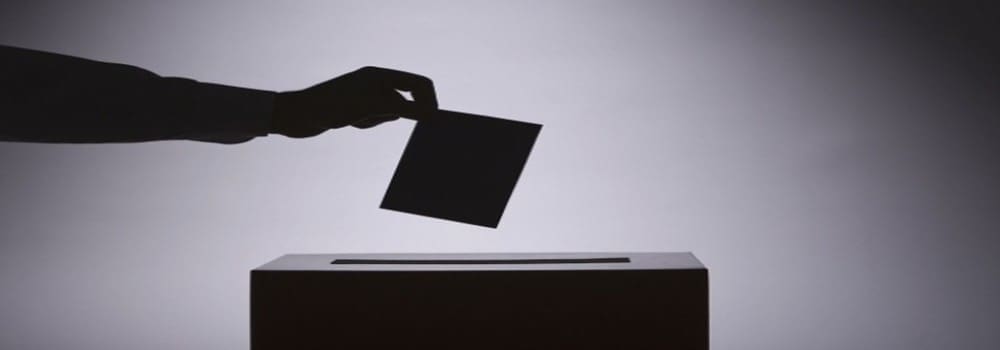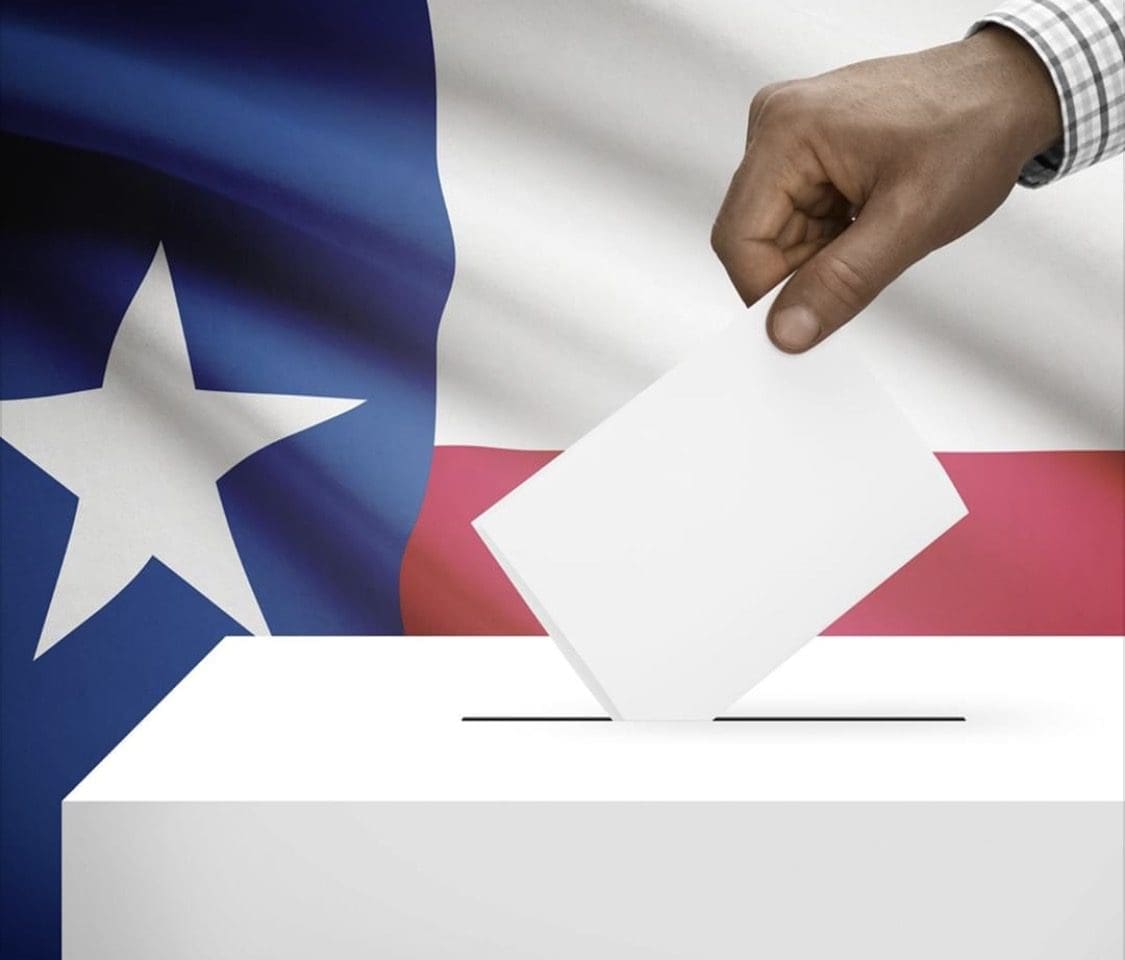Non-citizens are registering and voting in Texas elections, and current procedures are inadequate to prevent it, state and local officials told lawmakers in a special committee hearing.
The Senate Select Committee on Election Security heard testimony last month about problems with the voting process in Texas, including non-citizens illegally registering and voting.
Officials representing Texas’ Secretary of State, the Texas Attorney General’s office, and Starr County all testified at the February 22 hearing that under the state’s current system, non-citizens can easily register to vote in Texas without being detected.
It’s a violation of both federal and state law for non-citizens to vote or register to vote.
“Fundamentally, it looks as if we have a [voter registration] system that is not as accurate as necessary,” said State Sen. Brian Birdwell (R–Granbury), a member of the committee.
Keith Ingram, who heads the Texas Secretary of State’s Elections Division, testified:
“Election integrity has to have a voter registration list that contains only persons who are alive and eligible to register to vote. … The National Voter Registration Act requires all states to have in place a general program for updating voters who have changed addresses and for removing voters who have died, been convicted of a felony, or been adjudicated mentally incompetent.”
“We do have all of these programs in place,” Ingram added.
Ingram explained that the state cancels the registrations of certain inactive and deceased voters. But it’s the responsibility of county elections officials to investigate and remove all other ineligible people on the voter rolls – including non-citizens.
“Voter registration is county-based,” he said. “It’s their voters, not ours. That’s up to them.”
While the National Voter Registration Act (NVRA) requires local election officials to maintain accurate voter rolls, it also made it easier for non-citizens to get on the rolls by mandating that states offer voter registration by mail and at driver’s license offices. Registering to vote is now an honor system, with no documentation required and no one verifying citizenship – applicants merely check a box affirming they’re U.S. citizens.
Birdwell asked Ingram what mechanisms the Secretary of State or county voter registration officials have to ensure that non-citizens aren’t registering to vote. “Only the jury summons,” Ingram responded. State law requires jury clerks to report to elections officials all individuals who claim an exemption to jury duty because they are not citizens.
“The Secretary of State’s office’s only way to ensure non-citizens aren’t voting is the random sampling of a jury duty summons?” Birdwell asked.
“That is correct,” Ingram replied.
If a non-citizen never gets summoned to jury duty or doesn’t respond to a summons, Birdwell asked, “you have no mechanism to correct that wrong?”
“That’s right,” Ingram confirmed.
“We have no active method [to ensure non-citizens aren’t registering to vote]. We depend on the self-reporting of the individual,” Birdwell concluded. “That is a significant problem.”
State Sen. Don Huffines (R–Dallas) asked Ingram if the Secretary of State’s office, or any other state agency, oversees county elections officials to ensure that they’re maintaining accurate voter rolls. “No,” Ingram responded:
“We are an assist-and-advise agency … If a county is not doing an adequate job of working their matches and purging their [ineligible] voters, they end up with more voters than they have people registered in the county and that’ll get the attention of groups like the American Civil Rights Union, Public Interest Legal Foundation … They will get a notice letter [that the county is in violation of the NVRA].”
“So it’s up to the general public to police their own voting system,” Huffines observed.
Much of that monitoring, as Ingram noted, is being done by the American Civil Rights Union (ACRU) and Public Interest Legal Foundation (PILF). The two groups are working to hold election officials – in Texas and other states – accountable to voting integrity laws like the NVRA.
The ACRU, represented by PILF, sued Starr County, Texas in 2016 for violating the NVRA. Their federal complaint alleges that Starr County’s voter rolls “contain more voters registered to vote than there are citizens eligible to vote residing in the county.”
That includes deceased voters, ineligible felons, and non-citizens – all of which have been found on the county’s registration rolls and casting ballots.
District Attorney Omar Escobar confirmed to lawmakers at the hearing that non-U.S. citizens are registering and voting in Starr County, reinforcing statements he made while launching a voter fraud investigation in January.
“That non-citizens are registered to vote is beyond question,” Escobar testified. “That non-citizens are voting in Starr County is also beyond question.”
PILF, which is dedicated exclusively to election integrity, recently sent NVRA violation notices to Bexar County and Harris County officials who are concealing records of non-citizens registering to vote. If those officials keep denying access to public voter registration records, they too will face federal lawsuits.
Assistant Attorney General Jonathan White, with the Texas Attorney General’s Criminal Prosecutions Division, told the committee his office has also discovered evidence that non-citizen registration and voting is a problem across the state.
“In addition to finding non-citizens on voter rolls, we found that in fact they are voting,” White testified.
Texas Scorecard reported on those findings last month. A brief survey of four Texas counties found that in just the past two years, 165 unlawfully registered non-citizens were removed from those counties’ voter rolls – but only after they self-identified as non-citizens in the process of recusing themselves from jury duty. Those non-citizens cast 100 illegal votes.
Worse, the AG’s investigators found that “the process for removing ineligible voters who self-report as non-citizens at jury duty is not being followed correctly, or even at all, in various counties.”
Birdwell asked Ingram if the Secretary of State’s office has any recommendations for keeping non-citizens off Texas voter rolls and out of Texas elections.
Ingram said that several states – Alabama, Arizona, Georgia, and Kansas – have passed laws requiring documented proof of citizenship to register, but those laws aren’t currently being enforced due to legal challenges. Litigants claim the requirement violates the NVRA. A case challenging Kansas’ proof-of-citizenship law, which the 10th U.S. Circuit Court of Appeals temporarily blocked, will be back in federal court on March 6.
Depending on the outcome of that case, requiring proof of citizenship may be one of the solutions to the problem of non-citizens registering and voting in Texas that legislators consider in 2019.





